Mozambique: Three training institutes closed for lack of documentation
Central Mozambique without drinking water

DW (File photo)
The taps dried up in the Mozambican city of Mocuba, in the centre of the country, four months ago. The alternative – getting water from the river – is not only unpleasant. It also entails risk.
In the heat of this time of year, many families prefer to go live on the banks of the Licungo and Lugela rivers near the city of Mocuba in Zambézia. It is the simplest way to enjoy access to water. Nothing comes out of the city’s taps, resident Ana Xavier says. “We do not have any water – we have to go to the river. There are only a few wells in the city, and those are private.”
Ana Xavier does not live by the river, and has to wake up at three or four in the morning to get water. Even so, the flow is low. Residents have to walk hundreds of metres with buckets of water on their heads, adds Carlitos António. “The river is great. It’s drying up, but there is still some water left.” People who come a long way to get water from the river, he adds. “River water serves for everything: showering, washing… .”
But this turns out to be a problem. “The water is not good, it causes diarrhoea. People wash clothes and take a bath in the same water used for drinking.”
Zambezia’s provincial health director, Hidyat Kassim, says he is aware of the situation and promises water purifiers will be distributed.
“We are aware of the difficulties because of this lessening of the flow.” Thirty thousand purifiers have been purchased and will be distributed to people living along the banks of the river “to prevent them contracting diseases from the water, “Kassim told DW Africa.
President Nyusi promises to find solutions
The village of Gúruè, about 200 kilometres from Mocuba, is in a similar situation. According to the mayor, Orlando Janeiro, the problem is very serious. “The number of people in need exceeds 50,000. We are going through a bad time,” he says.
President Filipe Nyusi recently the visited the region and promised solutions. While acknowledging the seriousness of the problem, the president however said: “This is not as easy to solve as you might think. You have to build a distribution centre from scratch.” The president said Gúruè was one of 18 villages included in a project for water distribution centres. “The plan will roll out next year, and this problem will end,” he promised.


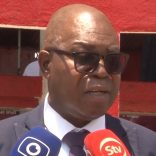
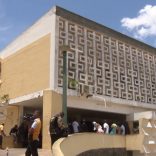
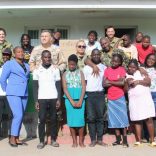
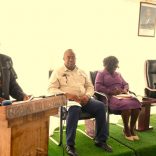

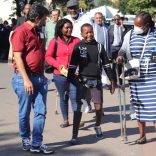




Leave a Reply
Be the First to Comment!
You must be logged in to post a comment.
You must be logged in to post a comment.